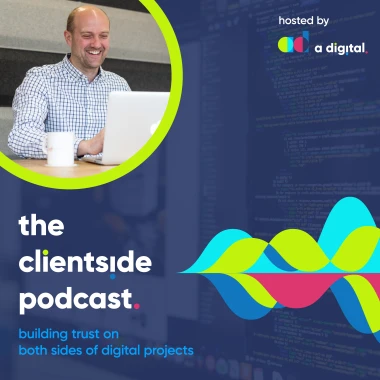
The Golden Toilet with Steve Brown
The Clientside Podcast
45 min Steve Brown
In this episode of the Clientside Podcast Andrew speaks with StoryBrand certified fellow agency owner Steve Brown.
We discuss Steve's book - The Golden Toilet: Stop Flushing Your Marketing Budget into Your Website and Build a System That Grows Your Business. Steve highlights four crucial components that make up what he has called the business growth stack. They are marketing automation, campaigns, sales automation and clear messaging.
We discuss websites and the importance of understanding your real aim before re-building yours. Most people have an expectation of what their website will do for their business, however getting the messaging correct first is key. Steve refers to this as HEO, human experience optimisation. In this increasingly virtual, digital world we are living in, having some human connection is critical.
Steve compares a website to a toilet, everyone needs one, but is it what makes a house a home?
Listen on your smart device or read the transcript below
When we say clear messaging, we all think text, but we need to think, we need to think HEO. And that's why I call it HEO, human experience optimisation as opposed to SEO.
Steve Brown Tweet